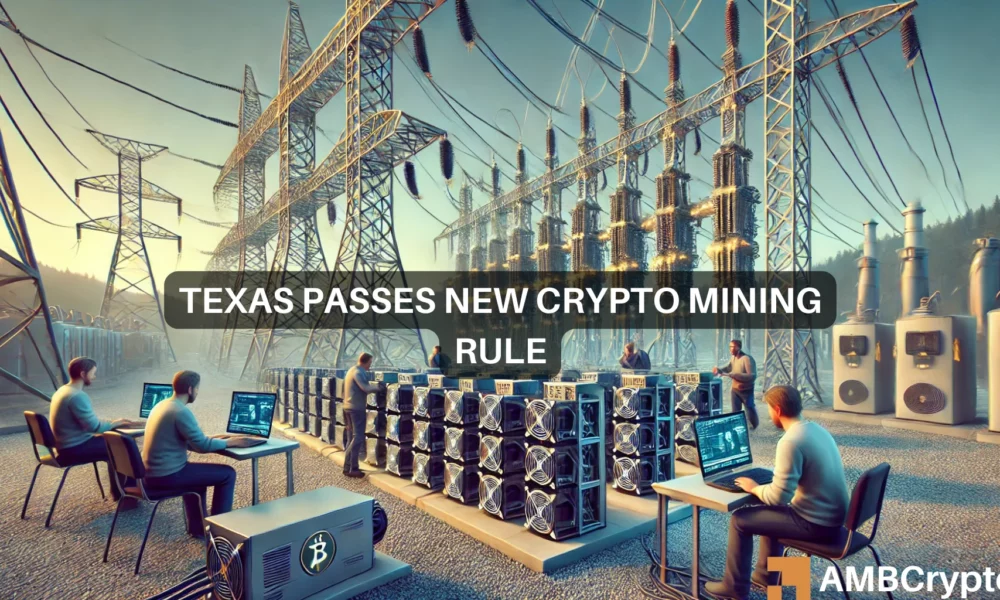With the rise in popularity of cryptocurrency mining, Texas has taken a significant step towards better managing its power grid. The state has implemented new regulations that necessitate crypto miners operating within the Electric Reliability Council of Texas (ERCOT) region to disclose their electricity consumption.
On November 21, the Chairman of the Public Utilities Commission of Texas (PUCT), Thomas Gleeson, unveiled the new rule. Under this mandate, Bitcoin [BTC] miners must furnish detailed data regarding their operational sites, ownership details, and power requirements.
The main objective behind these regulations is to uphold stability and efficiency within Texas’s power grid, especially with the continual growth in the number of mining facilities.
These regulatory measures have become imperative as Texas attracts a substantial influx of crypto mining ventures due to its cost-effective energy resources and supportive policies towards digital currencies.
Nevertheless, the escalating energy consumption resulting from these activities has raised apprehensions about potential strains on the state’s power infrastructure, particularly during peak times of demand.
By gaining comprehensive insights into the energy demands posed by crypto mining, Texas can enhance its preparedness and fine-tune grid management strategies to avert disruptions and sustain a dependable energy supply.
International Regulatory Developments in Crypto Mining
Outside Texas, numerous regions globally are also striving to regulate the energy usage associated with crypto mining endeavors. These measures aim to address the environmental and infrastructural implications brought about by the rapid expansion of this sector.
For instance, New York recently passed legislation that temporarily halts specific cryptocurrency mining operations reliant on carbon-based fuels. This step falls in line with broader initiatives to align the state’s crypto mining practices with its environmental objectives.
In contrast, countries like China have taken more rigorous actions by imposing a complete ban on cryptocurrency mining to tackle concerns over excessive energy consumption and environmental impacts.
These shifts in regulatory frameworks worldwide indicate a growing recognition and response to the intricate relationship between cryptocurrency mining activities and regional energy systems.
The latest rule in Texas aligns with the broader trend of regional governments scrutinizing the environmental and infrastructural consequences of crypto mining operations.
As more territories assess and enforce regulations, crypto miners are compelled to adjust to evolving conditions. Embracing compliance not only bolsters local infrastructure but also propels the industry towards adopting sustainable practices.
Amid the continuous expansion of BTC mining, regulatory initiatives like those introduced in Texas play a vital role in ensuring harmonious growth that respects the requirements and capacities of local power grids and environmental standards.
These regulations could establish precedents for handling the intersection of technology, energy consumption, and environmental accountability in the era of cryptocurrency.

